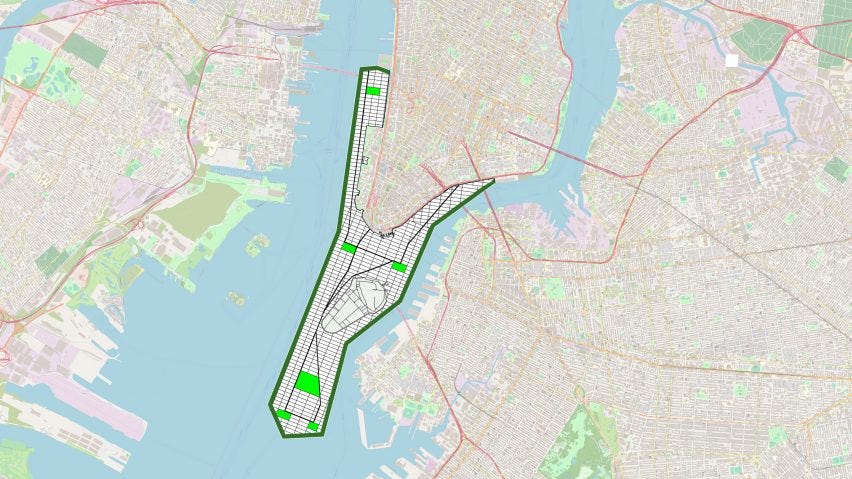I’ve been throwing this about in conversation with friends. So I want to properly record the idea on Substack.
In short, I think that there’s a very explicit path for ambitious kids that gets elevated by the cultural zeitgeist. But specifically, ambitious kids that find themselves at a cohort of specific universities.
That’s key to this whole model. It’s a holistic path that gets set through a mix of parental expectation, cultural narratives, the universities themselves, status reinforcement from peers, etc.
This also isn’t a completely new idea. This can go back to the old “show me what Harvard MBA’s are up to, and I’ll show you the next bubble”.
In the 80’s and 90’s we have finance. I’m probably biased as a Wharton undergrad drone, as well as my parents growing up in 70’s and 80’s NYC. But we can see the macro exist in cultural media. From movies like Wall Street/Trading Places (80s) to Glengarry Glen Ross/American Psycho (92/2000). We can consider American Psycho the true turnover in the meta, as the financier gets depicted as a literal murderer that is beyond conviction.
We then enter a moment of catastrophe that takes us off course a bit, where 9/11 brings mini spurt of ambition directed towards government and intelligence agencies. I often think about how David Tisch constructed his individualized major in terrorism.
But after the brief moment, we see start-ups/technology take hold. If you were young and ambitious, you were building software. The iPhone supercharges this. It gets canonized in The Social Network. And gets an counter-institutional home through the Thiel Fellowship and YC (I include YC because of the classic question would you spend your time at YC or HBS).
But now we are slowing creeping to the mid 2020’s. There are far more stories about tech grift than tech triumph. And AI is poised the radically shift what work even is.
And for those that are rolling their eyes right now. This isn’t to say that lawyers and doctors aren’t ambitious paths. It’s simply that the initial flow of that ambition was set a while ago. It is no longer the “long tail” of ambition. Or the cultural edge of what ambition could look like. Once that long tail gets put into the central system of high achieving paths, it never leaves. But it doesn’t change our need to find those new long tails. NOW FOR THE ACTUAL IDEA
The next ambition market is going to be a return to the public sector. But not in simply joining a government agency. By making your own government.
We are seeing proto-examples of this with DAO’s. But the more important one to watch will be the growth of charter cities, city expansion projects, and simply building “new cities” (and whatever branding that takes on).
In a world where AI abstracts a lot of previously ambitious knowledge work, where will people gather for the social function of work? How beautiful might it be to be more directly pointed back at serving each other. Setting new values for physical spaces and cultures, and as a result, the bet is that it will produce new and bright economies.
The new Founder + CEO, is the Settler + Mayor… again.
This question is starting to get asked in very specific circles. And, similar to my Creative Directing Mars talk, I felt a certain responsibility to open source this probe to more people.
WHY ARE WE TALKING ABOUT CITIES? WHAT NARRATIVES ARE PUSHING US THIS WAY? WHERE ELSE IS THIS HAPPENING?
I’ve been very blessed to travel a good deal this year. From Mexico City, San Francisco, Los Angeles, Cairo, and Paris. Each in very different cycles of their history and future as a city.
In Cairo, expanding from the East is (appropriately named) “New Cairo”.
Planned in the early 2000’s, New Cairo is exactly what it sounds like. Boasting new residential promises, international education and development, as well as new government buildings that represent different Cario + Egyptian government agencies.
Like other Cairo development projects, New Cairo is meant to alleviate the strain on the growing city. Projected to be able to hold 5 million residence in the future, New Cairo held 300k residence according to the 2017 census.
The ambition and narrative of the projects there are quite clear. And the hope of expanding Cairo as an international hub for industry and education lay itself plain in its planning.
Learning about New Cairo led me back to an expansion proposal for NYC.
Rutgers professor Jason Barr proposed this expansion project, that you can read more about in Dezeen. But below I pulled what I believe are the core quotes to grok.
"The city can't tinker its way out of its problems. The time has come to think creatively and boldly."
According to Barr, the proposal builds on previous historical precedents as Manhattan Island has been extended numerous times since it was settled by Europeans in the 17th century.
"Creating new land through infill is a centuries-old tradition," explained Barr. "Lower Manhattan, south of City Hall, has been expanded by nearly 50 per cent. The Dutch, then the English, then the Americans created this land because it helped New York's economy grow and thrive."
…
"Lower Manhattan is some of the most valuable and important real estate in the world, why not produce more of it? If the city is going to spend billions on flood walls and other resiliency projects, why not also try to get more housing out of it is as well?"
Can we act this boldly within our current confines? I’m not sure.
In a tweet that got insanelyyyyyy dragged, a guy talked about visiting a cathedral with his father, an architect. He asked his father if we could build something like this today. And his dad said something like, “we can’t, we don’t know how anymore.”
Obviously the central nihilism that streaks through Twitter on a daily, had to show this guy a lesson. But there’s obviously a truth there. The values that vaulted our cathedrals of old, do not exist in the same way today. But looking in the rear-view mirror as if this is something to correct… is also not the point.
Government is the ultimate victim of the rear-view mirror. Even our most recent Supreme Court cases are a prime example of looking back into history to rewrite a few previous cases, rather than allowing the progress for new relief plans like the student debt crisis.
And thus the burgeoning need-space is established.
Without the insanity of a modern Robert Moses (which we won’t get into), it’s hard to imagine a Manhattan extension project to ever materialize.
Might we look to new canvases for development?
I often think of the countryside. I grew up in the Poconos. Which I wouldn’t consider countryside, but definitely suburbia edging on rural.
In Rem Koolhaas’s report on the countryside. He mentions “unreliable urban narratives of the countryside” you can see in the caption of this 032C snippet.
Unreliable Narratives I think could be an entire book about the past 20+ years of technology as a professional discourse arena. What was said, materialized, and effected.
In a world where everything is up for grabs, narrative becomes the first weapon drawn. To wield a narrative is to shape the perception of [insert thing here]. And once enough people look through a single lens, no matter the material reality, that thing is slated to be changed.
The continuous rise of frustration towards the American city will materialize into something. My gut tells me it won’t be focused local reform. As much as I would love to see Manhattan extended… I’m not sure Americans know how to do such projects within our culture. Instead, what we are much more biased towards is some mix of psychological + physical abandonment. And capital, always available for the next meta, will aide both. We are already seeing it with projects like Praxis. (holding both critique and interests aside, more projects like this are going to + should happen)
This next unreliable narrative will come at a unique cost as all the kinks get worked out. Children will be born, raised, educated in these new landscapes. Cultural values further reinforced and potentially isolated. Our current central cities will continue in their trends of gentrification, displacement, and utility abstraction (Drew Austin has a great piece on this abstraction felt by the constant barrage of deliver bikers overtaking sidewalk space).
Despite all of this, we shouldn’t deter marching into this new arena. As Stewart Brand said, “We are as gods and might as well get good at it.”
Why not try and build 100 new cities? It’s not like we can’t move back. It’s not like towns haven’t come and gone before. It’s not like we don’t know how to do it…
Even if out of 100, only 1 succeeds. How exciting might that be?
Designed for autonomous vehicles from the ground up. An inherent focus on walkability. A school network that embraces individual learning paths, assisted by AI. An Alo Yoga studio right in the center… I can see it now.
I don’t do edits really, so excuse typos and things that don’t make sense.
Thanks so much for giving me your attention. I hope it was worth it, if not… unsubscribing will not hurt my feelings, and will give you back time you literally cannot have back.
Much love.
Live in the light







